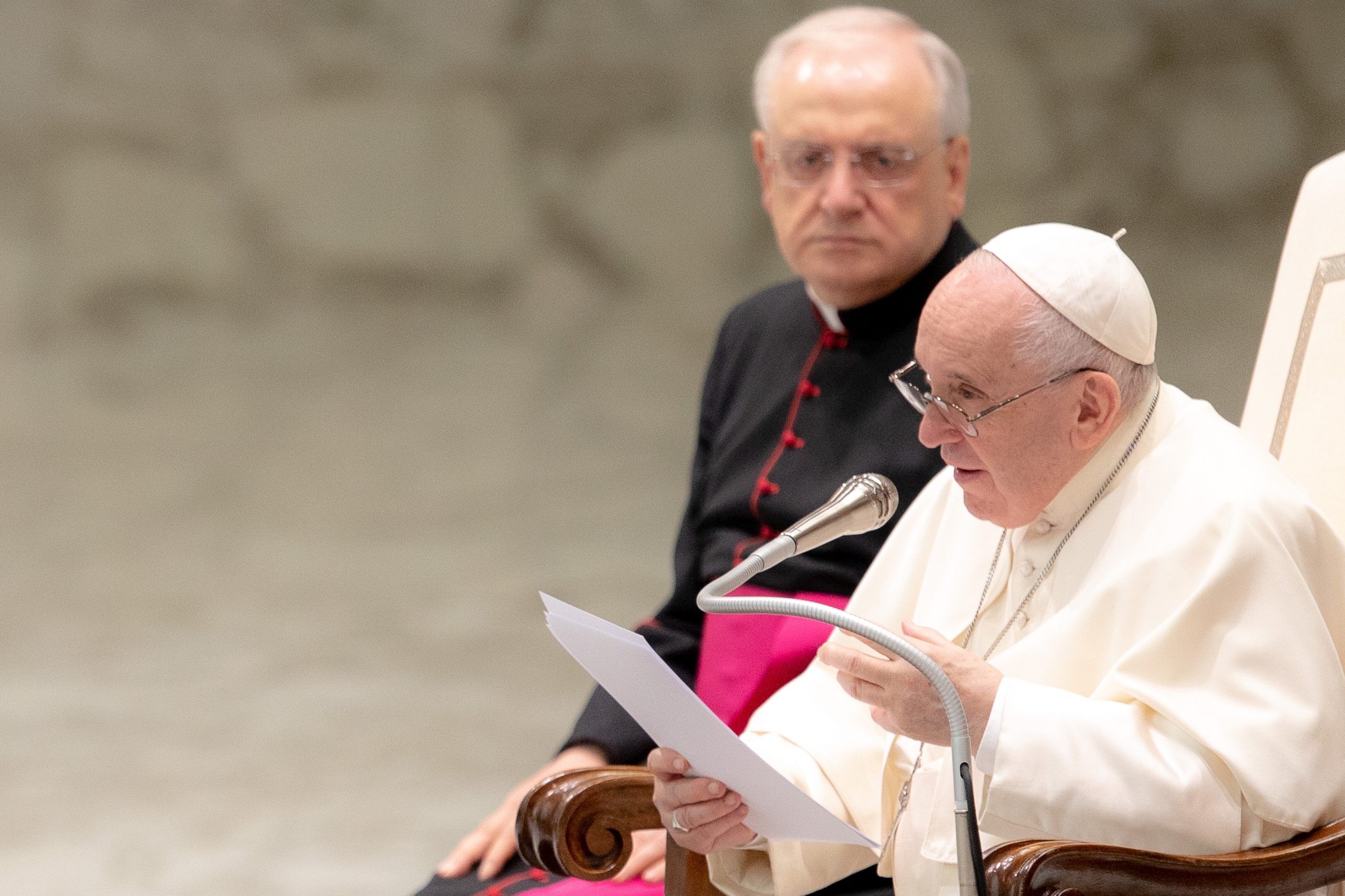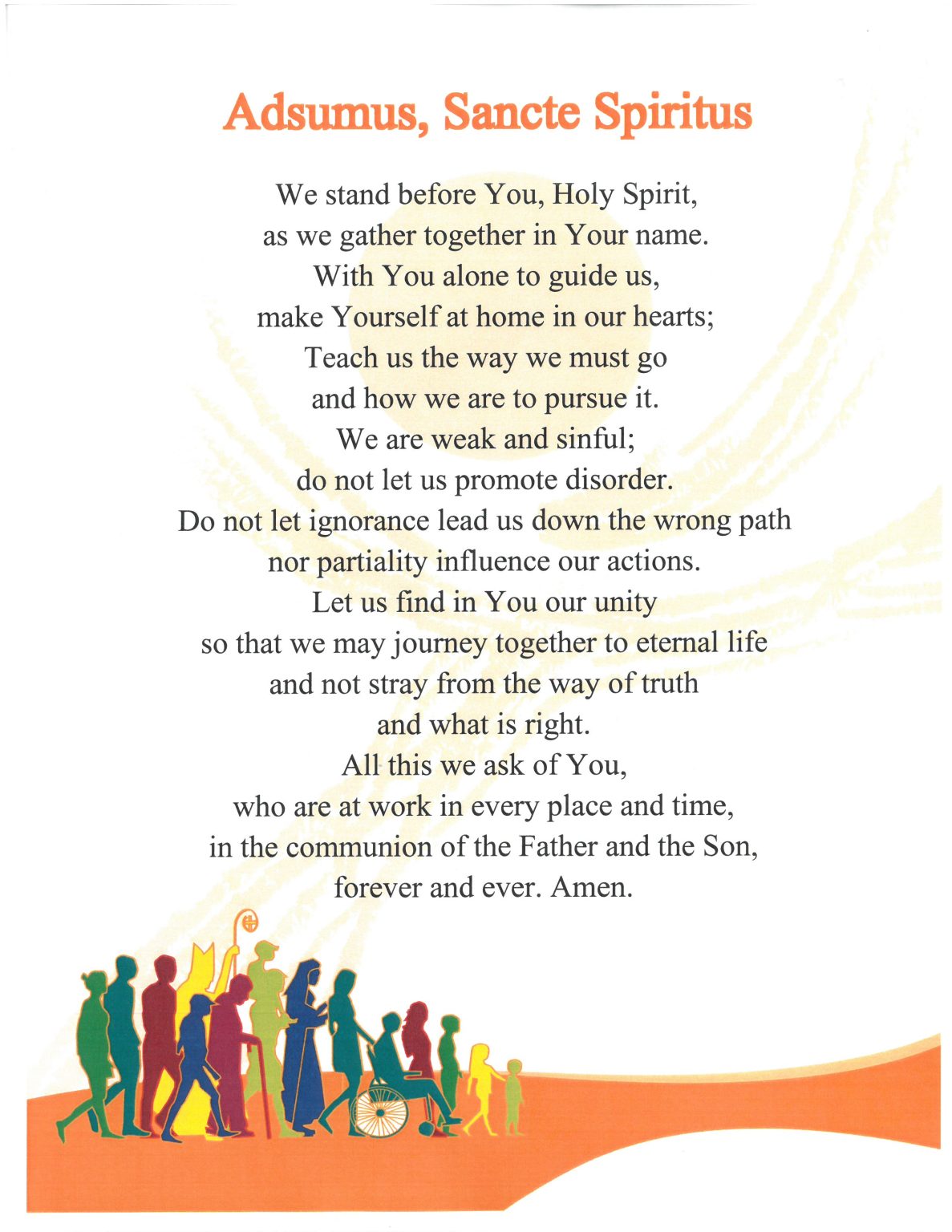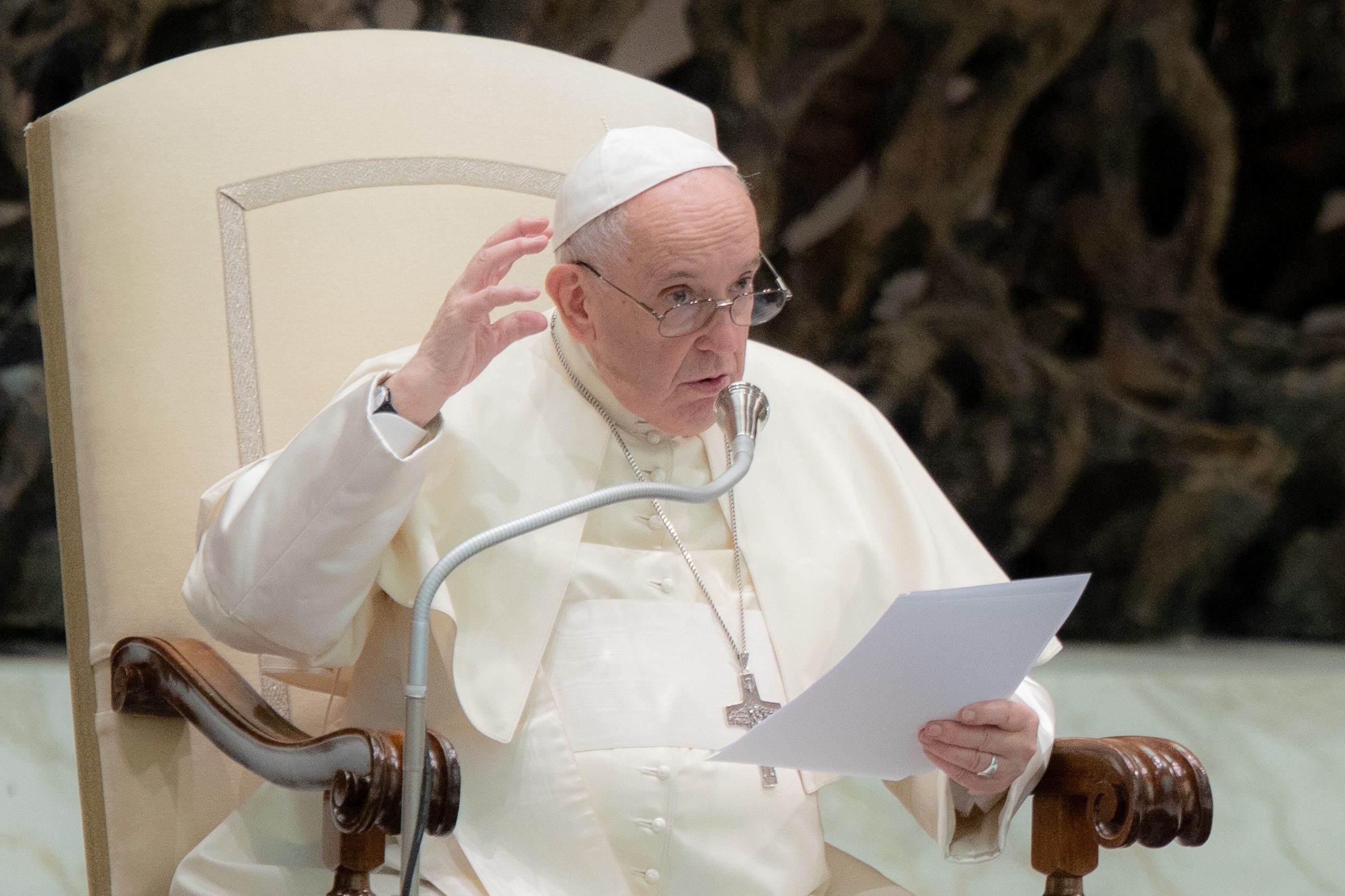Synod on Synodality
October 2024, Vatican City, Rome
Don’t know what the Synod is all about? Check out the What’s a Synod? page first!
The Holy Father has convened a Synod and has asked the people of God to participate in the synodal process. The final stage of the Synod will take place at the Ordinary General Assembly of Bishops in October of 2024.
“The Synod is a process of spiritual discernment, of ecclesial discernment, that unfolds in adoration, in prayer and in dialogue with the word of God.”
-Pope Francis
Many Parishioners Participated in the
Synod on Synodality!
Pope Francis invited the whole Church to participate in the next phase of the Synod on Synodality through engagement sessions that will inform the upcoming Synod of Bishops on Synodality in October 2024.
Engagement Sessions took place in each county – Marin, San Mateo, and San Francisco. The sessions included reflections and discussions designed to help shape the Church’s understanding of herself and her mission of evangelization and forming disciples. The Archdiocese of San Francisco invited every Catholic to participate in this local synodal process during Lent. The Catholic Leadership Institute facilitated the sessions, and results will be summarized and shared with the United States Conference of Catholic Bishops (USCCB), who will use the information collected to prepare a national report for the Synod leaders at the Vatican.
WHAT IS A SYNOD?

A synod is a council of the Church, usually convened to decide an issue of doctrine, administration or application. The word synod is from the Greek sinodos (σύνοδος) meaning “assembly” or “meeting” and is similar to the Latin concilium meaning “council”. Sometimes the phrase “general synod” or “general council” refers to an ecumenical council, like the Second Vatican Council (1962-1965).

What is a Synod of Bishops and
why do they happen?
At the end of the Second Vatican Council, Saint Pope Paul VI sensed the need for the Roman Pontiff to continue meeting periodically with the bishops of the world, which is why, on September 15, 1965, he established a new entity within the Church called the Synod of Bishops. The Synod of Bishops is a permanent institution that forms part of the Church’s long tradition of organizing ecclesial assemblies to deliberate on the most pressing issues of a particular place and time. Since its establishment in 1965, the Popes have called for and lead a total of 15 General Ordinary Assemblies, 3 General Extraordinary Assemblies, and 11 Special Assemblies of the Synod of Bishops. The topics of each assembly are selected by the Pope. The most recent General Assemblies have been on Youth, Family, New Evangelization, the Word of God, and the Eucharist.
What is Synodality?
In the words of Pope Francis, a synodal Church is a “listening Church knowing that listening is more than feeling. It is a mutual listening in which everyone has something to learn. We must all listen to the Holy Spirit, the spirit of Truth to know what the Spirit is saying to the Church. […] This is what the Lord expects from the Church of the third millennium.” (Address at the commemoration of the 50th anniversary of the Synod of Bishops, 17 October 2015)
What is the current Synod?
In the ceremony to commemorate the 50th anniversary of the institution of the Synod of Bishops in October 2015, Pope Francis declared that “the world in which we live, and which we are called to love and serve, even with its contradictions, demands that the Church strengthen cooperation in all areas of her mission.” (For a Synodal Church handbook) This call to cooperate in the mission of the Church is addressed to the entire People of God. In April 2021, Pope Francis initiated a synodal journey of the whole People of God, to begin in October 2021 in each local Church and culminating in October 2024 in the Assembly of the Synod of Bishops.
What is the goal of this Synod?
The objective of this Synodal Process is not to provide a temporary or one-time experience of synodality, but rather to provide an opportunity for the entire People of God to discern together how to move forward on the path towards being a more synodal Church in the long-term. Pope Francis characterizes the two interrelated goals of this process of listening: “to listen to God, so that with him we may hear the cry of his people; to listen to his people until we are in harmony with the will to which God calls us.”
Why are we holding a Synod at this time?
In October 2015, Pope Francis stated that “the world in which we live, and which we are called to love and serve, even with its contradictions, demands that the Church strengthens cooperation in all areas of her mission.” This process is especially important during times of changes in Church and society. We must reflect on the signs of the times in light of the Gospel. “The decision to ‘journey together’ is a prophetic sign for the human family, which needs a shared project capable of pursuing the good of all… We need to let ourselves be educated by the Spirit to a truly synodal mentality, entering with courage and freedom of heart into a conversion process that is indispensable for the ‘continual reformation of which [the Church] always has need, in so far as she is a human institution'” (Synod 2023 Preparatory Document, no. 9).
Who can participate?
All the baptized were invited to participate in the Synodal Process. Special care was taken to involve those persons who may be at risk of being excluded: persons with disabilities, migrants, refugees, the elderly, people who live in poverty, inactive Catholics, etc.
What will be the outcome of this Synodal process?
Because the history of the Church gives ample witness to the importance of consultation of diocesan clergy and faithful in matters pertaining to the good of the Church, these discussions are given special attention. The consultations are followed by discernment on the part of bishops chosen for the task, united in the search for a consensus that does not spring from worldly logic, but from common obedience to the Spirit of Christ. Attentive to the sense of the faith of the people of God – which they need to carefully distinguish from changing public opinion – the Synod Bishops will then work together for ecclesial consensus, which is not determined by the tallying of votes, but is the outcome of the working of the Holy Spirit which enlivens the one Church of Christ.
Pope Francis has affirmed that this Synod of Bishops must increasingly become an instrument for listening to the People of God. The results are then submitted to the Holy Father in his capacity as universal Pastor of the Church. Once the results have been accepted by the Holy Father, an implementation phase in every diocese follows, to initiate the reception of the Synod’s conclusions. It must be remembered that given the diversity throughout the world, the results must be enculturated if they are to be respected and applied. In this way, it can be seen that the synodal process not only has its point of departure, but also its point of arrival in the People of God, upon whom the gifts of grace bestowed by the Holy Spirit through the Synod of Bishops must be poured out.
Prayer for the Synod

Archive: 2022-2023 Synod activity
Stay in the Loop!
Please subscribe to our free e-newsletter or free glossy magazine to be kept in the loop on all the latest regarding the Synod on Synodality, and other news from the Archdiocese of San Francisco. Please fill out this form below.




